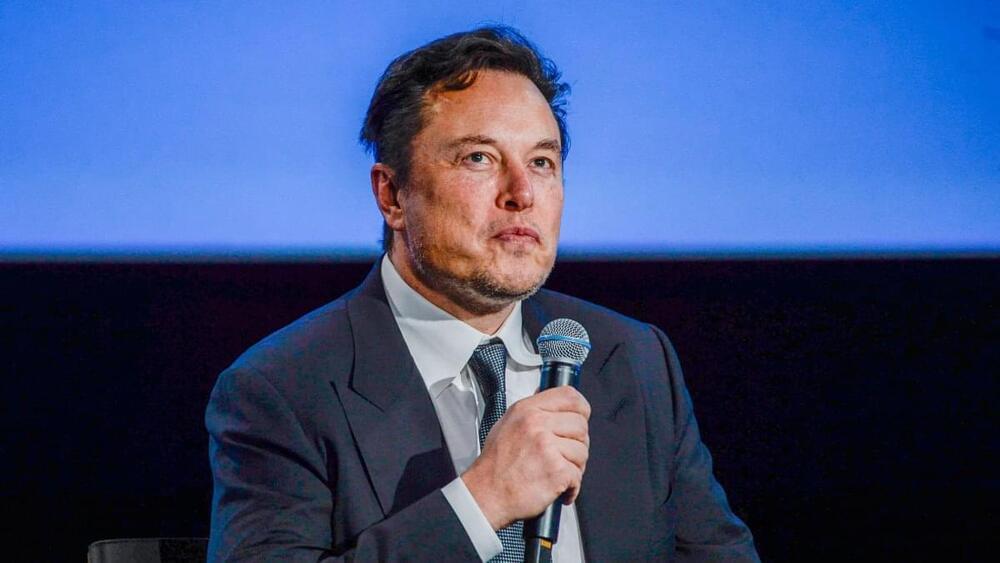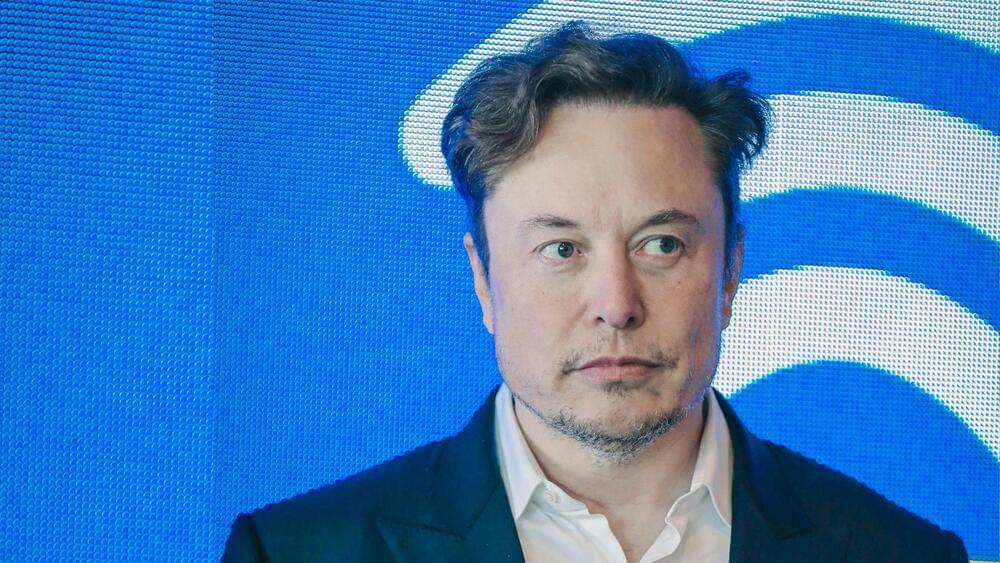Who is winning the Battle of the Robot Armies? Both Elon Musk and Jeff Bezos will soon have over one million robots each. That means they will soon have as many robots in their army as there are soldiers in the US army…
Category: Elon Musk – Page 74
Elon Musk Reveals New Optimus Robot Video! (2023 Tesla Shareholder Meetinig)
😀
At the 2023 Tesla Shareholder meeting in Austin, Texas, Tesla CEO Elon Musk shows off a new Optimus video, the company’s humanoid robot in development.
Never miss a deal again! See CNET’s browser extension 👉 https://bit.ly/39Ub3bv.
#tesla #elonmusk #live
Tesla Bot Update: The humanoid is getting better and is learning faster than humans
The company hasn’t really put a date for their actual deployment in its own factories.
Elon Musk’s electric car to solar-making company, Tesla, also has one more product in the pipeline aimed at wooing customers, The Tesla Bot. Musk announced the bipedal robot in 2021, and recently the company has provided an update on its progress through a 65-second video.
Regarding bipedal robots, the benchmark is relatively high, with Boston Dynamics’ Atlas capable of doing flips and somersaults. Musk, however, never said that Tesla was looking to entertain people with its robots’ antics.
Tesla/ YouTube.
Tesla CEO Elon Musk discusses the implications of A.I. on his children’s future in the workforce
Tesla and Twitter CEO Elon Musk sits down with CNBC’s David Faber for an exclusive interview from Austin, Texas, during Tesla’s annual shareholder meeting. Musk talks about advice he would give his children on going into the workforce as A.I. continues to boom.

Russia’s war on Ukraine has caused lasting damage to international spaceflight cooperation
This article gives a clear and chilling assessment of the impact of the Ukraine conflict on the future of collaborative space exploration; in doing so it highlights how humankind’s habitual tendency towards wars severally slow, if not completely halt, our urgent reach for the stars. As that old warrior Churchill once said„ ‘Jaw, jaw is always better than War, war!’
Russia’s invasion of Ukraine in February 2022 has resulted in hundreds of thousands of deaths, millions homeless and displaced and billions of dollars of damage in infrastructure. The conflict has also had less immediate but significant impacts on other areas, including on the space industries of Ukraine and Russia, but also globally in terms of the launch market, spaceflight activity and international cooperation.
In the wake of the start of the conflict on Feb. 24, 2022, and resulting international backlash against Russia, the then-head of the Russian space agency Dmitry Rogozin threatened to end its cooperation with the West on the International Space Station (ISS) program over sanctions imposed on Russia. He also issued a threat to SpaceX founder and CEO Elon Musk for the company’s role in providing connectivity through its Starlink satellites.

SpaceX hires former NASA human spaceflight official Kathy Lueders to help with Starship
Kathy Lueders, the most recent top human spaceflight official at NASA, has joined Elon Musk’s SpaceX after retiring from the agency a couple of weeks ago, CNBC has learned.
Lueders’ role will be general manager, and she will work out of the company’s “Starbase” facility in Texas, reporting directly to SpaceX president and COO Gwynne Shotwell, people familiar with the matter told CNBC.
It’s a key hire for SpaceX as the company aims to make its massive Starship rocket safe to fly people in the coming years. Lueders, a respected expert in the sector, is already familiar with the company’s human spaceflight work to date.

Elon Musk Claims Google Co-Founder Is Building a “Digital God”
In a bombastic interview with none other than Tucker freakin’ Carlson, Elon Musk made a bold claim about Google co-founder Larry Page that, we have to admit, isn’t entirely implausible.
During the newly-released Fox News interview, Musk alleged that back when he and the Google co-founder and CEO “used to be close friends” and he’d stay at the techster’s Palo Alto house, they’d get into lengthy discussions about “AI safety” — and that what Page told him led to his own cofounding of OpenAI.
In characteristic confused-puppy fashion, Carlson asked Musk what Page had said about AI.
Should We Stop Developing AI For The Good Of Humanity?
Almost 30,000 people have signed a petition calling for an “immediate pause” to the development of more powerful artificial intelligence (AI) systems. The interesting thing is that these aren’t Luddites with an inherent dislike of technology. Names on the petition include Apple co-founder Steve Wozniak, Tesla, Twitter, and SpaceX CEO Elon Musk, and Turing Prize winner Yoshua Bengio.
Others speaking out about the dangers include Geoffrey Hinton, widely credited as “the godfather of AI.” In a recent interview with the BBC to mark his retirement from Google at the age of 75, he warned that “we need to worry” about the speed at which AI is becoming smarter.
Many high-profile tech figures, including Steve Wozniak and Elon Musk, are calling for a pause in the development of AI over concerns about its potential to cause harm, whether intentionally or unintentionally. Is the speed of advancement outpacing the ability to put in place adequate safeguards?

Elon Musk wants to develop TruthGPT, ‘a maximum truth-seeking AI’
On Tuesday, Elon Musk said in an interview with Fox News’ Tucker Carlson that he wants to develop his own chatbot called TruthGPT, which will be “a maximum truth-seeking AI” — whatever that means.
The Twitter owner said that he wants to create a third option to OpenAI and Google with an aim to “create more good than harm.”
“I’m going to start something which you call TruthGPT or a maximum truth-seeking AI that tries to understand the nature of the universe. And I think this might be the best path to safety in the sense that an AI that cares about understanding the universe is unlikely to annihilate humans because we are an interesting part of the universe,” Musk said during the Fox & Friends show.

Elon Musk discusses his ‘painful’ Twitter journey in an interview with BBC
The ride as Twitter CEO has been a rollercoaster.
More than six months after he agreed to buy out Twitter for $44 billion, Elon Musk, the world’s second-richest person, has now confirmed what many thought was the reason for the purchase — the judge would have made him do it otherwise. Musk confirmed this during a last-minute interview with the BBC.
Wikimedia Commons.
Life as Twitter CEO.